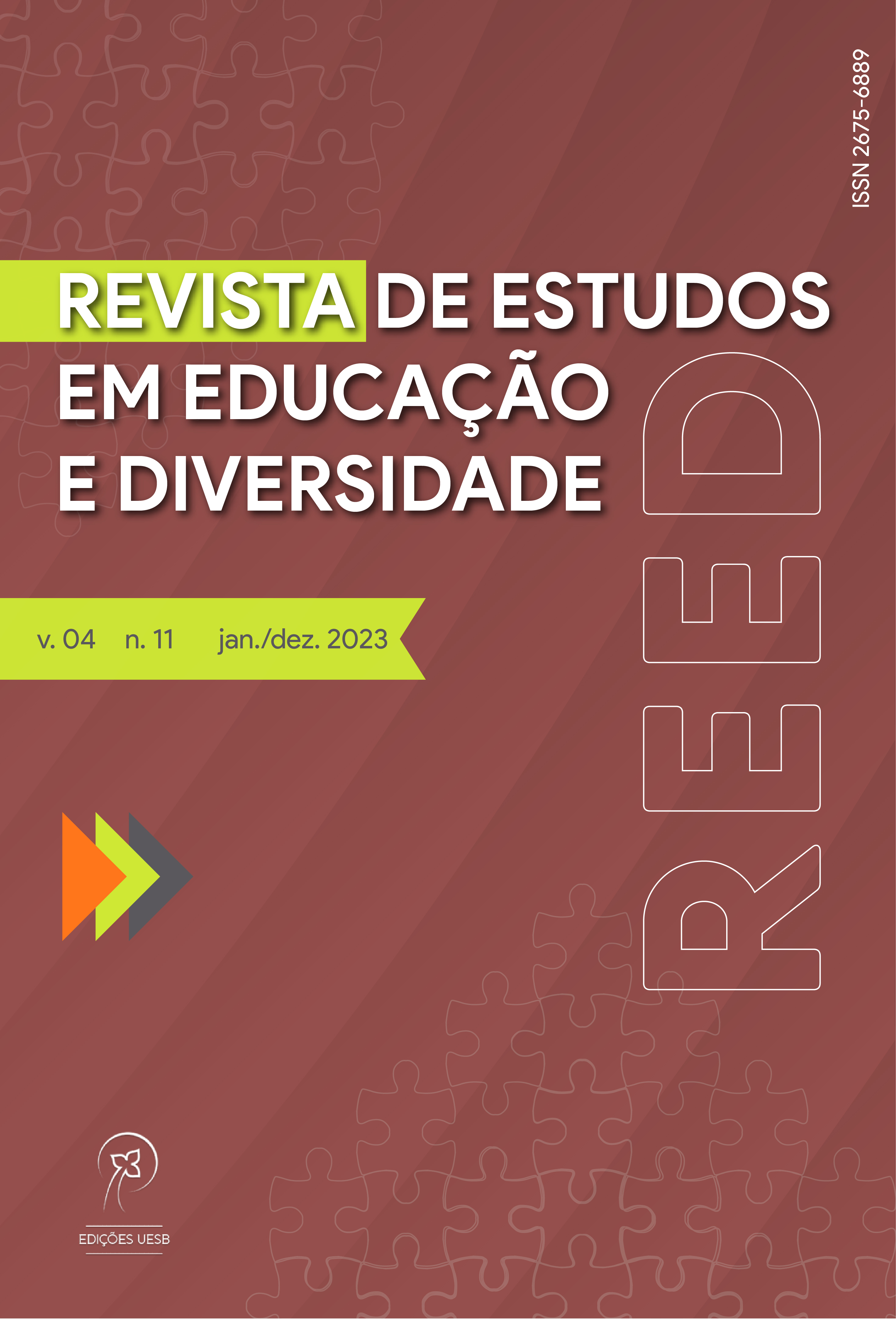The chemistry of pesticides: a didactic proposal for high school with a focus on the CTS approach
DOI:
https://doi.org/10.22481/reed.v4i11.14060Keywords:
pesticides, teaching proposal, CTS teachingAbstract
Pesticides, also known as pesticides or agrochemicals, are used to combat agents that damage plant growth and production. However, excessive use of the chemical substances in their composition can cause some harm to human health and the environment. Although this information is publicized, it does not clarify the effects it has on people who handle pesticides and consume contaminated products. The aim of this study is therefore to propose methodological strategies for introducing the subject into the high school curriculum, through the subject of chemistry. After a literature review to conceptually situate the CTS (Science, Technology and Society) approach in the subject in focus, we propose a didactic sequence based on the three pedagogical moments proposed by Delizoicov and Angotti (1990). With this initiative, we aim to encourage the formation of critical citizens who are committed to the society in which they live.
Downloads
References
BRAIBANTE, M. E. F.; ZAPPE, J. A. A Química dos Agrotóxicos. Química Nova na Escola, v. 34, p. 10-15, 2012.
BRASIL. MINISTÉRIO DA EDUCAÇÃO (MEC). Secretaria de Educação Média e Tecnológica. (SEMTEC). PCN+ ensino médio: orientações educacionais complementares aos Parâmetros Curriculares Nacionais: ciências da natureza, matemática e suas tecnologias. Brasília, DF: MEC/SEMTEC, 2002.
CASTRO NETO, N.; DENUZI, V. S. S.; RINALDI, R. N. e STADUTO, J. A. R. Produção orgânica: uma potencialidade estratégia para a agricultura familiar. Revista Percurso, v. 2, p. 73-95, 2010.
CAVALCANTI, J. A.; FREITAS, J. C. R.; MELO, A. C. N. e FREITAS FILHO, J. R. Agrotóxicos: uma temática para o ensino de química. Química Nova na Escola, v. 32, p. 31-36, 2010.
DELIZOICOV, D.; ANGOTTI, J. A. Física. São Paulo: Cortez, 1990.
FARIA, A. P. L.; PANDOLFI, M. A. C. Os perigos de resíduos de agrotóxicos nos alimentos. In: Simpósio de Tecnologia da Fatec Taquaritinga, 2017, Taquaritinga - SP. Anais[...]. Taquaritinga - SP, 2017. Disponível em: http://simtec.fatectq.edu.br/index.php/simtec/article/view/209. Acesso em: 10 Out. 2023.
FONSECA, B.; GRIGORI, P. Laranja, pimentão e goiaba: alimentos campeões de agrotóxicos acima do limite. Brasil de Fato, 24 de Out. de 2020. Disponível em: https://www.brasildefato.com.br/2020/10/24/laranja-pimentao-e-goiaba-alimentos campeoes-de-agrotoxicos-acima-do-limite. Acesso em: 23 ago.2023.
GARCÍA, J. L. et al. Ciencia, tecnología y sociedad: una introducción al estudio social de la ciencia y la tecnología. Madrid: TECNOS, 1996.
HOFSTEIN, A.; AIKENHEAD, G.; RIQUARTS, K. Discussions over STS at the fourth IOSTE symposium. International Journal of Science Education, v. 10, n. 4, p.357-366, 1988.
KRAUSHAAR, A.; ROSKOSZ, K. A. Concepções de estudantes do ensino médio sobre agrotóxicos e transgênicos. In: SIMPÓSIO NACIONAL DE ENSINO DE CIÊNCIA E TECNOLOGIA, 5., 2016. Anais [...]. 2016. p. 1-12.
LIMA, A. M.; MOZZER, N. B. Análise do entendimento conceitual em uma sequência didática sobre o uso de pesticidas fundamentada na modelagem analógica. Química Nova na Escola, v. 41, p. 82-97, 2019.
Downloads
Published
How to Cite
Issue
Section
License
Copyright (c) 2023 Revista de Estudos em Educação e Diversidade - REED

This work is licensed under a Creative Commons Attribution 4.0 International License.
You are free to:
Share - copy and redistribute the material in any medium or format; Adapt - remix, transform, and build from the material for any purpose, even commercially. This license is acceptable for Free Cultural Works. The licensor cannot revoke these freedoms as long as you follow the terms of the license.
Under the following terms:
Attribution - You must appropriately give credit, provide a link to the license, and indicate if any changes have been made. You may do so in any reasonable way, but not in a way that suggests that you or your use is endorsed by the licensor.
There are no additional restrictions - You cannot apply legal terms or technological measures that legally restrict others to make any use permitted by the license.






